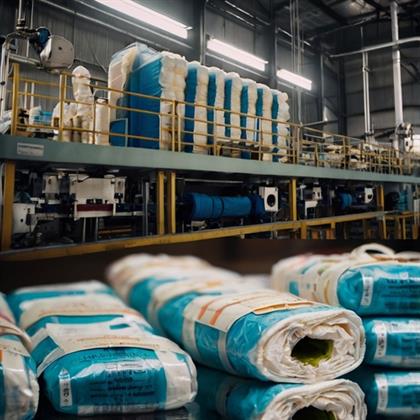
Strategies for Success in the Middle East Private Label Food and Beverages Market Share
February 19, 2024
The Middle East private label food and beverages market share is on an upward trajectory, driven by evolving consumer preferences and changing market dynamics. With consumers increasingly seeking value-driven options without compromising on quality, private label brands have emerged as formidable contenders in the region's competitive retail landscape. In this article, we explore strategies for retailers and manufacturers to succeed in capturing a greater share of the Middle East private label food and beverages market.

One of the key strategies for success in the Middle East private label food and beverages market share is differentiation. As competition intensifies, retailers and manufacturers must differentiate their private label offerings through product innovation, unique value propositions, and targeted marketing strategies. By identifying niche segments and addressing unmet consumer needs, private label brands can carve out a distinct identity and gain a competitive edge in the market.
For more info: https://www.gmiresearch.com/report/middle-east-private-label-food-and-beverages-market/
Furthermore, retailers must invest in building consumer trust and credibility for their private label brands. Transparency in sourcing, production processes, and ingredient labeling is crucial to winning consumer confidence and loyalty. By prioritizing quality, safety, and sustainability, retailers can strengthen their brand reputation and enhance consumer perception of their private label products.
Collaboration with suppliers and manufacturers is another key strategy for success in the Middle East private label food and beverages market share. By fostering strong partnerships and leveraging supplier expertise, retailers can ensure the quality, consistency, and cost-effectiveness of their private label offerings. Collaborative innovation and co-development initiatives can also help retailers stay ahead of market trends and deliver differentiated products that resonate with consumers.
In addition, retailers must adopt a multi-channel distribution strategy to maximize the reach and accessibility of their private label products. In addition to traditional brick-and-mortar stores, retailers should embrace online and digital channels to tap into the growing e-commerce market and reach tech-savvy consumers. Omni-channel retailing not only enhances convenience for consumers but also provides retailers with valuable data insights to optimize product assortment and marketing strategies.
Finally, retailers must continuously monitor market trends, consumer preferences, and competitor activities to stay agile and responsive in the dynamic Middle East private label food and beverages market. By leveraging data analytics and market intelligence, retailers can identify emerging opportunities, anticipate changing consumer demands, and adapt their strategies accordingly to maintain and grow their market share.
In conclusion, success in the Middle East private label food and beverages market share requires retailers and manufacturers to embrace innovation, differentiation, and collaboration. By delivering quality products, building consumer trust, and leveraging multi-channel distribution, private label brands can capture a greater share of the market and drive sustainable growth and profitability in the region's evolving retail landscape.
Leave a Reply
Related Products
You Might Like Also

Forecasting the Future of the Adult Diaper Market 2031
The Adult Diaper Market is set for transformative growth as we approach 2031. With increasing life expectancy and changing societal norms surrounding incontinence Read More

The Future of Advertising: In-Game Advertising Market 2031
The In-Game Advertising Market is on the verge of a transformative era as it continues to gain traction among advertisers looking to connect with consumers in engaging ways Read More

Carbon Black Market Outlook: Growth Prospects and Challenges by 2031
The Carbon Black Market is expected to grow steadily by 2031, spurred by increasing demand from industries like rubber, plastics, and paints. Carbon black Read More

The Energy Harvesting System Market is set to expand significantly by 2031, driven by advancements in technology and the increasing need for sustainable energy solutions Read More

The Future of the Steam Turbine Market by 2031
The Steam Turbine Market is on the cusp of a transformation, influenced by the global energy landscape's evolving demands and technological advancements Read More

The Aquafeed Market is projected to witness robust growth by 2031 as the global aquaculture industry continues to expand Read More











